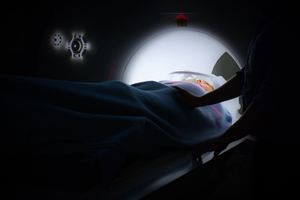 What is cervical cancer?
What is cervical cancer?
Cervical cancer is a common treatable cancer and with early detection it is curable. It is a cancer of the neck of the womb. It is the 9th most common cancer in women in Ireland and about 200 women are diagnosed with it yearly.
How is screening done?
Cervical smear testing is a quick and painless procedure where a speculum is placed into the vagina and a soft brush is used to take some cells from the cervix. It literally only takes five minutes.
The cells are then sent to the lab to be examined. Most smear tests are normal. If they are not quite normal or there is any doubt the result is labelled “borderline”. You are then recalled for a repeat test again in six months.
If there are some abnormal cells detected this is mainly treated by colposcopy- a simple day procedure in hospital- and you will have avoided developing cervical cancer.
The sooner any cancer is picked up the easier it is to treat.
What are the symptoms of cervical cancer?
Cervical screening is for people with no symptoms for early detection.
The following symptoms need to be checked out promptly by your G.P. as they can be symptoms of cervical cancer. They can be present in other conditions also- but always need to be checked out promptly.
- Abnormal vaginal bleeding e.g. between periods, after sex and after the menopause.
- Pelvic pain
- Blood stained vaginal discharge.
What are the risk factors for getting cervical cancer?
The factors that increase your risk of getting cervical cancer are carrying the Human Papilloma Virus (HPV). HPV is extremely common and is sexually transmitted. In most people it causes no symptoms but in some it increases the chance of getting cervical cancer.
There is now a vaccine for some strains of the HPV vaccine available, which it is hoped will hugely reduce the incidence of cervical cancer. Some schools are vaccinating girls before they become sexually active to help lower their risk.
Smokers also have an increased incidence of cervical cancer. If you have a large number of children this too increases your risk.
The main risk factor for getting Cervical Cancer is NOT GETTING SMEAR TESTS!
One smear test isn’t enough, as no screening test is 100% reliable and with time cancers develop. It should be done every 3-5 years for women between the ages of 25-60 years.
Below the age of 25 years, there is controversy as to how effective or accurate testing is. Anyone in this age group who has any of the symptoms associated with cervical cancer should still see their GP who can refer them for appropriate testing.
How big was the Jade Goody Effect?
I fear the Jade Goody effect has worn off a bit. I don’t know if Jade Goody’s tragic death could have been preventable but I do know that it caused a huge turnout of people to have smear tests. In England approximately 400,000 more women than average had a smear test in the year Jade died. It is estimated that thousands of lives were saved by the increase in screening.
Screening in Ireland is run by Cervical Check- an extremely efficient system that provides free smears, automatically recalls you and also delivers the results straight to your door by post within four weeks.
If you think you should have been called but haven’t got an invitation letter or you think you are due a smear test- log on to www.cervicalcheck.ie and with your PPS number you can check when your next smear is due.






